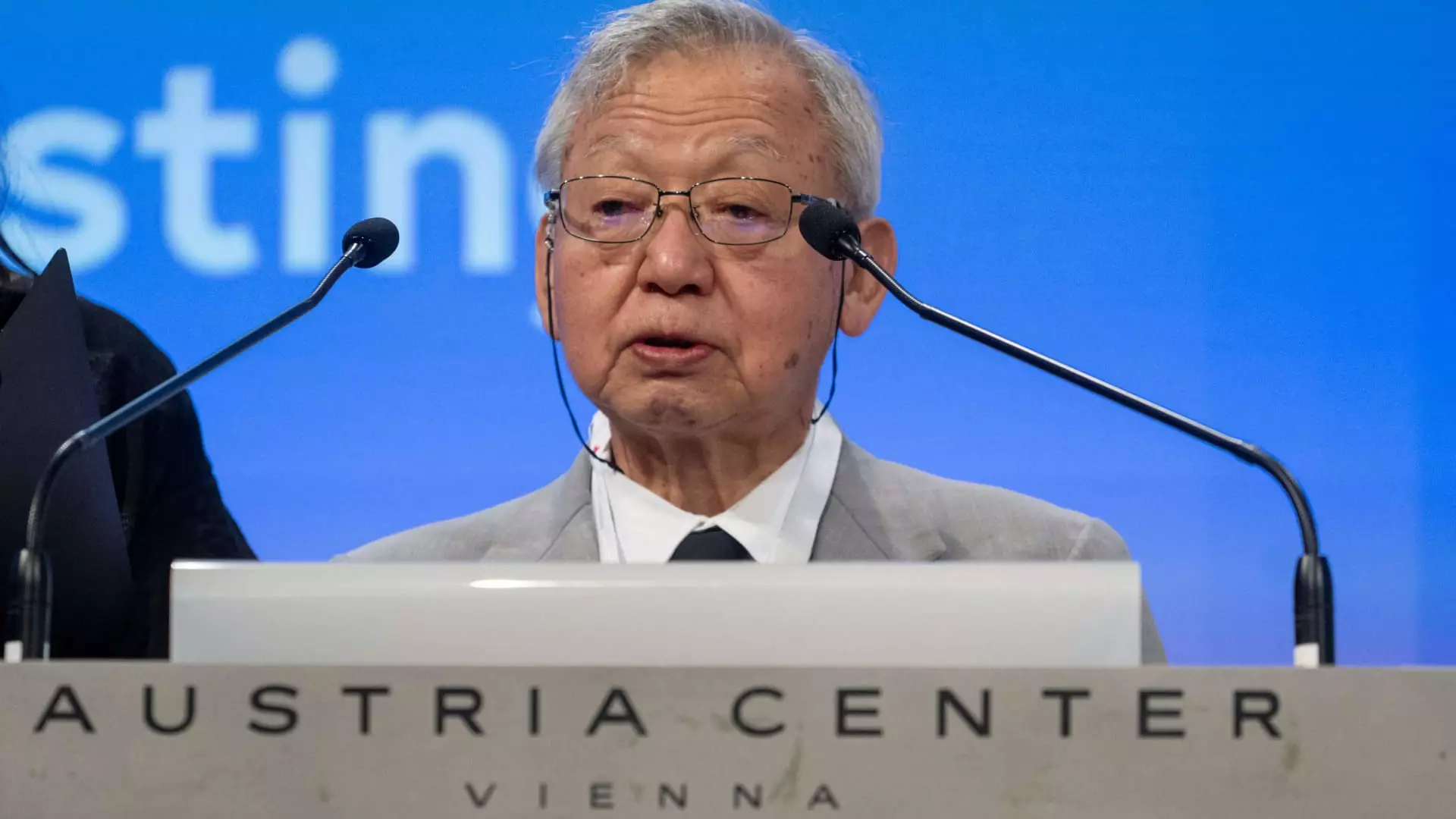In a significant recognition of its enduring commitment to peace and advocacy against nuclear proliferation, the Japanese organization Nihon Hidankyo has been awarded the Nobel Peace Prize. This honor is a testament to the relentless efforts of this grassroots movement, established in 1956 by atomic bomb survivors, known as Hibakusha, who seek to illuminate the catastrophic impact of nuclear warfare on humanity. Beyond mere rhetoric, Nihon Hidankyo’s work embodies the resilience of survivors who endured unimaginable horrors 78 years ago in Hiroshima and Nagasaki.
The Nobel Committee highlighted the important role that Nihon Hidankyo has played in fostering an evolving international norm against the use of nuclear weapons, aptly referred to as “the nuclear taboo.” This principle asserts that the utilization of such destructive weapons is not only politically precarious but morally reprehensible. It serves to guide global discourse, instilling a sense of repulsion towards the mere idea of nuclear conflict and thus advocating for a world devoid of these weapons.
Central to Nihon Hidankyo’s mission is the poignant testimony of the Hibakusha. Their stories serve as powerful reminders of the human tragedy that can result from warfare and the ethical responsibilities humanity bears in preventing future occurrences. The experiences shared by these survivors have become instrumental in raising awareness and garnering support for nuclear disarmament across the globe. They have laid bare the human suffering and stark reality of atomic warfare, urging global leaders to reconsider the justification of such weapons in modern warfare.
In the context of today’s changing geopolitical climate, the current undercurrents affecting the nuclear taboo are alarming. While no nuclear weapon has been deployed in warfare for nearly eight decades, recent developments and increasing tensions among nations threaten to undermine this hard-won consensus. The Nobel Committee’s warning symbolizes the precarious balance that currently exists, highlighting an urgent need for vigilance and sustained advocacy against the normalization of nuclear arms.
Nihon Hidankyo’s recognition by the Nobel Committee follows in the footsteps of previous awardees who have similarly championed the cause of peace. The International Campaign to Abolish Nuclear Weapons (ICAN), awarded the prize in 2017, also sought to confront the persistent shadow of nuclear proliferation and advocate for disarmament. The committee’s consistent focus on nuclear disarmament underscores a global acknowledgment of the issue as a paramount humanitarian concern.
The presentation of the Nobel Prizes on December 10, coinciding with the anniversary of Alfred Nobel’s passing, serves as an enduring reminder of the values that underpin this prestigious award. Alongside recognition of Nihon Hidankyo’s achievements, the committee also celebrated the work of Narges Mohammadi, an Iranian human rights advocate. Her fight against oppression highlights the universal struggle for human rights and the need for solidarity among all those who resist tyranny.
Catalyzing Global Action
As Nihon Hidankyo prepares to receive this esteemed accolade, it embodies a call to action for communities worldwide. The battle against nuclear weapons is far from over, and the voices of survivors remain crucial in advocating for a future that prioritizes peace and the sanctity of human life. The Nobel Peace Prize serves not only as recognition but as a rallying cry to fortify our collective efforts in dismantling the engines of war, fostering a world where the horrors of nuclear annihilation remain a specter of the past rather than a possibility for the future.


Leave a Reply